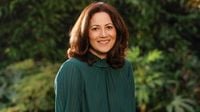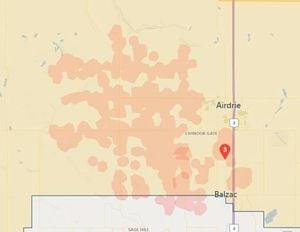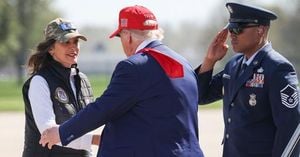Mishal Husain, a prominent broadcaster and journalist, recently took viewers on a captivating journey through her family history in the latest episode of the BBC's acclaimed series Who Do You Think You Are?. The episode aired on BBC One and showcased Husain's exploration of her roots, revealing a rich tapestry of ancestry that includes remarkable figures and significant historical events.
Husain, who has previously penned a book about her grandparents' experiences during the end of the British Empire in India and the formation of Pakistan, began her exploration in India. Here, she discovered that one of her ancestors served as the personal physician to a maharaja, a position that carried both prestige and responsibility. This intriguing revelation set the stage for a deeper dive into her family's past.
Among the most striking discoveries was her great-great-grandfather, who not only served as a surgeon to the maharaja but even had the honor of being presented to Prince Albert, the grandson of Queen Victoria. This connection to royalty highlighted the exceptional opportunities her ancestor had, despite the challenges posed by his mixed-race background.
Adding to the family lore, Husain uncovered that a distant forefather, Joseph Farley, attended Harvard University. His academic journey, however, was not without its bumps; he was expelled for staging a protest regarding the quality of food in the college dining hall. Fortunately for Husain, the story had a happy ending as Joseph was later reinstated, graduated with honors, and even won a prize for his dissertation. Husain reflected on this achievement, saying, "I’m an Asian parent, so I’m very worried about a student not getting their degree," expressing both pride and relief at her ancestor's accomplishments.
The exploration of her family tree did not stop there. Husain traced her lineage back to Michael Farley, her six-times great-grandfather, who was an ally of George Washington during the American Revolution. One of Michael's sons, Jabez, fought bravely at the Battle of Bunker Hill in Boston, further solidifying the family's historical significance. In a poignant moment during her journey, Husain visited Ipswich, Massachusetts, where she found a plaque in the local library commemorating Michael Farley and his four sons as "soldiers of the Revolution." This discovery was a testament to the family's contributions to American history.
While the episode highlighted many proud moments, it also revealed some uncomfortable truths. Husain learned that Joseph Farley eventually left America to seek his fortune as a planter on a sugar plantation, which would have relied on indentured labor. This aspect of her family history prompted a reflective response from Husain, who acknowledged, "That’s not a very happy thing to find out." The complexity of her family's past elicited a range of emotions, showcasing the multifaceted nature of heritage.
Throughout the episode, Husain's warmth and curiosity shone through as she engaged with each new revelation. Her journey was not just a personal exploration but also a broader commentary on the intertwining of individual lives with significant historical events. The series has been praised for its ability to connect ordinary people to extraordinary moments in history, and Husain's story was no exception.
As a journalist known for her sharp intellect and ability to tackle even the most sensitive topics with grace, Husain's transition from the BBC to Bloomberg has marked a new chapter in her career. However, her journey on Who Do You Think You Are? was a reminder of her roots and the stories that shape who we are.
Husain expressed a bittersweet sentiment at the end of the episode, wishing her late father, who passed away nine years ago, could have been there to share in the discoveries. Her reflections on family and legacy resonated deeply, inviting viewers to consider their own histories and the stories that define them.
In a world where familial connections often shape personal identity, Husain's journey serves as a reminder of the importance of understanding our roots. The episode was a beautiful blend of personal narrative and historical exploration, making it a compelling watch for anyone interested in the intricate tapestry of family history.
As the series continues to unveil the pasts of various personalities, Mishal Husain's episode stands out for its heartfelt exploration of heritage, identity, and the enduring impact of family history on our lives. It challenges viewers to reflect on their own familial legacies and the stories waiting to be uncovered.




